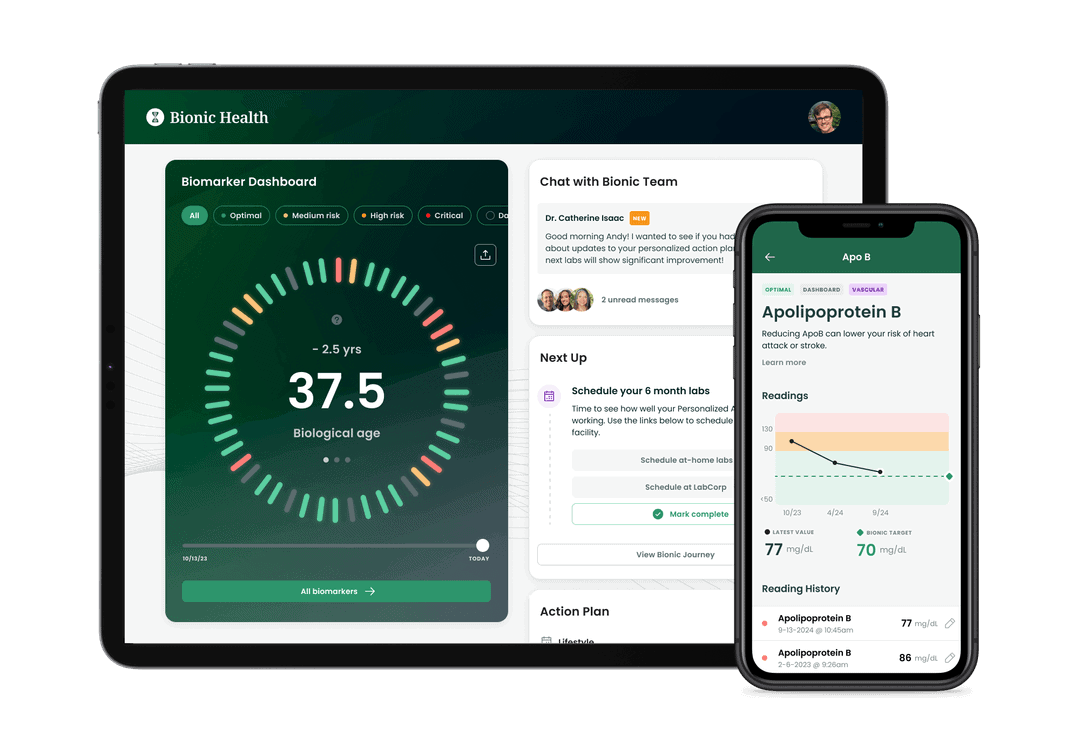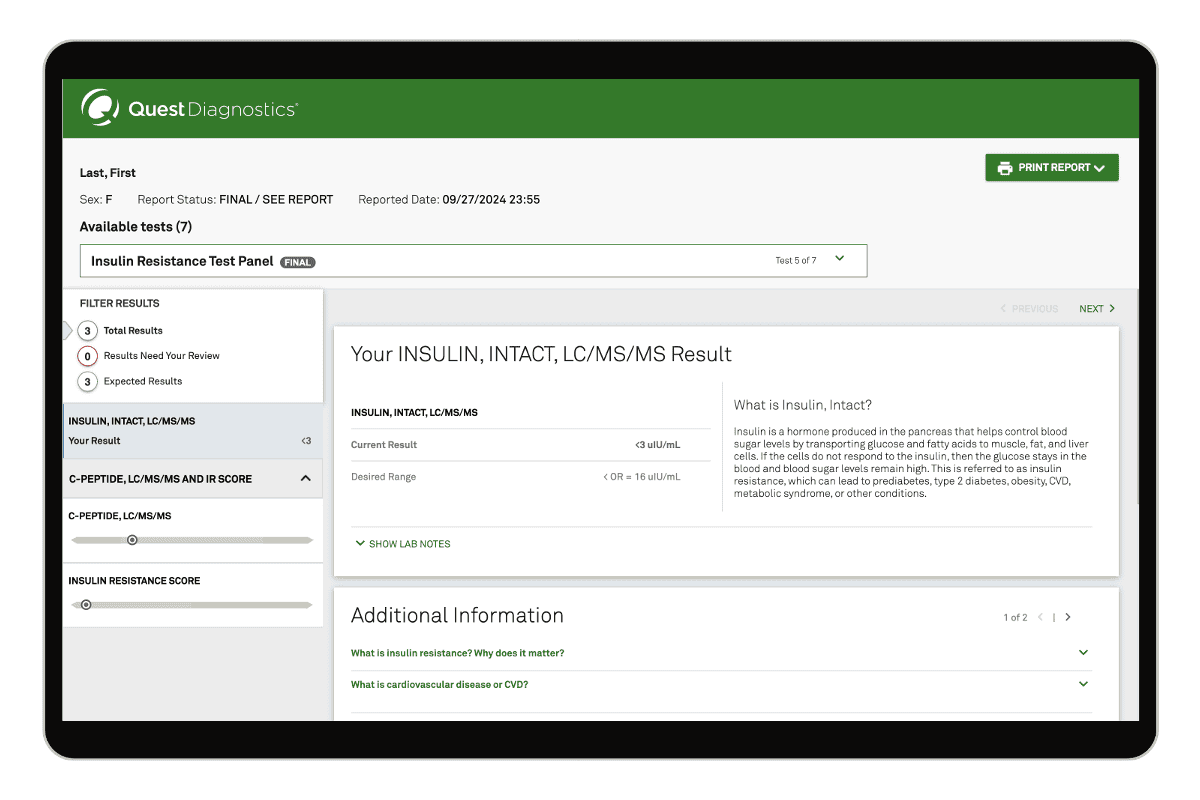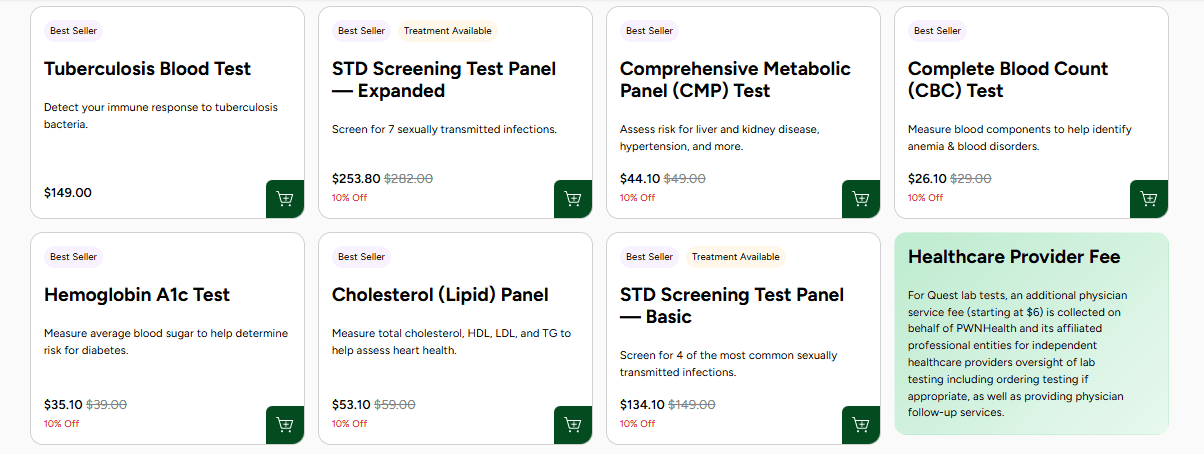After giving Function Health five hundred of my human dollars, I was a bit disappointed that their “160+” biomarkers weren’t exactly 160+, but rather 100… and then a follow-up test where they looked at only 60. I was also a bit surprised that the follow-up care was not so much care as a read out loud session.
If you have struggled too, and want a program with a more holistic and athletic approach, or one with a bit more guidance, check out these top Function Health Alternatives. I am looking at:
Topic Contents
Pain Point #1: Function Health Focus Isn’t Holistic Enough
FunctionHealth focuses on a lot of health biomarkers, but not as much on holistic care, body composition, or athletic performance. As such, if you are focused more on your weight and fat levels, or you want to improve athletic performance, I would consider Bionic Health

Top Alternative: Bionic Health
If you are an athlete or looking to improve your body composition specifically, Bionic Health is a great alternative to Function Health. Their pricing plan is a bit different: they charge a $370 start-up fee and then charge plans at $125 per month. If you want their personalized wellness plan, it is $459. They offer additional assessments for body composition analysis (with results that might be hurtful, but true) and physical performance.
As an athlete, I was happy to pay a few hundred dollars on top of my baseline plan to get a much deeper look into my performance and abilities. My doctor would just ask, “How often do you work out?” and without looking up from his notes, just follow up with “You’re fine.” So obviously, anyone looking for real, actionable data on performance won’t get it from their GP. They’ll get it from Bionic Health.
With Bionic Health, I can’t find any reason they charge the startup fee because no other organization charges one, other than they send you what is considered a free membership box to start your subscription. This “free” box contains things like protein bars, a water bottle, and a blood pressure monitor, so effectively, you end up paying a startup fee for a lot of their swag.
Runner Up: InsideTracker
I would call InsideTracker a runner-up. They cover ten health categories, many of which can fall under the “holistic” aspect, including your recovery, cognition, and sleep. They don’t have a startup fee but offer similar views into body composition and weight loss.
Pain Point #2: Function Health Blood Draws Aren’t Frequent Enough
Function Health claims you get two blood draws per year as part of your annual membership. But as many users have found, that’s not exactly true. You get two blood draws, but each blood draw looks for different biomarkers, so every 6 months, you are looking at a different panel of 100 biomarkers versus 60 different biomarkers.

Top Alternative: LifeForce
If your biggest issue is your blood draws don’t happen as frequently as you need, it’s best to find an alternative like LifeForce.
Let’s say you are dealing with a heart condition like high triglycerides or cholesterol. In these cases, if you are taking medication like statins, you might need much more frequent monitoring to measure the efficacy of your medication as well as any other lifestyle changes you are making. Much the same, blood draws to measure diabetes should generally be done every 6 months, but Function Health limits users.
LifeForce gives you blood draws every three months, with follow-up consultations with a physician, so you can monitor legitimate conditions like diabetes, heart conditions, kidney or liver disease, too.
Runner Up: InsideTracker
InsideTracker takes the inside track again, but in second place. They claim you can “retest every 3-6 months”, but it doesn’t say how many of those tests are included in the membership plan, or what the additional cost is for more tests. That’s why they are squarely in second place.
Pain Point #3: Function Health Test Options Aren’t Good Enough
Each year, Function Health charges for two lab tests: First is the annual test, which covers 100 biomarkers, and second is the mid-year test, usually 6 months later, which measures only 60 biomarkers.
If you want anything else, they do have on-demand tests, but those come at an extra cost, so if you are already paying $500 for your basic membership, these costs can add up.

Top Alternative: Quest
By comparison, Quest offers tests a la carte. If, for example, you are worried about diabetes, you might already get tests on a regular basis, especially blood draws from your doctor, but now you want to screen for allergies, anxiety, or a more specific test like whether you are done with menopause.
Quest lets you order individual tests, which range in cost from between thirty and a few hundred dollars, after which you can review your results and, in some cases, get treatment.
So if you aren’t interested in 160 biomarkers with a litany of data you don’t need, and you only want to pay for specific tests, consider Quest as a top Function Health alternative.
Runner Up: LifeForce
LifeForce is a good runner-up. They don’t test as many categories as Function Health or Quest, hence second place, but their panel seems more comprehensive; it looks at the important biomarkers rather than just claiming to offer the highest number of biomarkers.
Pain Point #4: Function Health Follow-Ups Aren’t Good Enough
Function Health gives you results with “insights from doctors,” a written summary, and a phone call IF, and that’s an important “if”, there are any critical results.
For some people, this can be exactly what they need, a wider range of biomarker data and a clinical summary that they can show to their doctor and discuss. But for others, that doesn’t really give any actionable information on how to manage themselves day to day, especially if it’s something like a hormonal imbalance, low energy, or a problem with weight gain.

Top Alternative: LifeForce
If you want advanced, personalized health guidance, LifeForce is your go-to top Function Health alternative.
While it is more expensive, you are getting significantly more help and follow-on support for that cost. The costs are laid out on a monthly basis, and within that, you get the higher frequency of blood draws, which come with a 45-minute, one-on-one discussion with a clinician every 3 months rather than the big *if* of Function Health. You also get a pretty comprehensive care team, like a coach and someone to help you with your nutrition, people who lay out ongoing plans for improving the results of your biomarkers with lifestyle changes and supplements.
Runner Up: InsideTracker
Man alive, does InsideTracker hold strongly onto that silver medal.
So, they are a good runner-up if you think Function Health follow-ups aren’t good enough. They have a similar structure to LifeForce, with a lot of data, follow-up notifications and the like. Most of that comes through their app, and from data gleaned by DNA tests and wearables. I’m not a huge fan of being required to wear something while I sleep, so it’s a second-place prize for InsideTracker.
Pain Point #5: Function Health Doesn’t Help Optimize Performance
Somewhat similar to the last pain point, Function Health doesn’t really focus on optimizing your performance. So if you want to feel stronger, get better sleep, and improve yourself across a wider array of performance-based metrics, not just health biomarkers, consider InsideTracker.

Top Alternative: InsideTracker
InsideTracker is a robust platform, one that measures 10 categories. They use data from blood draws, DNA tests, and fitness trackers like wearables to get that level of info.
As you continue to work with them, they continue to send you dedicated reminders relevant to your results, like “Hey, don’t forget to meditate for ten minutes today” or “Remember to stretch before bed.”
Their categories are a cross between the holistic nature of Bionic Health and the comprehensive biomarker nature of LifeForce. They focus on things like cognitive performance, sleep, metabolism, hormones, and recovery.
The recovery part is great, as most people are either really good or really bad at recovery, and yet it plays an essential role in all of those other categories. Big fan of real rest over here. And now I have the data to prove it.
Runner Up: LifeForce
As InsideTracker finally gets to the top of the pyramid, LifeForce switches places. Why? It helps you optimize your performance with a similar structure: each category is assigned a score out of 100, with colors to indicate things like “Good” or “Bad” or “Meh”– kidding. Sort of. The name of the category is something like “needs work”, not “meh.”
Still, their focus isn’t as wide.
Pain Point #6: Function Health Costs are Too High
Let’s face it, no one wants another $500 bill. Even if it is annual. So if the costs are too high and the service isn’t worth it, you might need to look elsewhere.

Top Alternative: Quest
Quest is a good alternative IF (there’s that big “if” again) you are looking for a few tests and the cost of Function Health is too high. At $500 per year, you can save quite a bit with Quest if you only need to order a $50 test thrice per year or two $100 tests two times per year.
But a big note here: Quest charges a la carte. If you can apply insurance or only need the test results to take back to your doctor, make sure you know what the total cost will be for your a la carte tests. If it exceeds $500, it might be worth it to look elsewhere.
Runner Up: InsideTracker
Basic annual membership is $149. However, this means you bring blood test results with you, like, from your doctor. So, if you want the comprehensive analysis and your insurance already covers blood draws, this can be a great way to save money.
Pain Point #7: Function Health Has Limited Treatment
Function Health, as mentioned, doesn’t give treatment. So part of your membership is basically just that reading assignment I mentioned. Bleh.
If your main pain point with Function Health is limited treatment options, go with LifeForce as your alternative.

Top Alternative: Life Force
LifeForce is pretty comprehensive in their support options. Whereas companies like Quest annotate on their test list which options *could* have support, they still sort of just push you to meet with your GP, the one who won’t look up from their notes.
LifeForce, however, gives you access to and discounts on supplements to help with certain treatments. If, for example, you are a woman going through menopause or a man in your 40s with low testosterone and related issues, you probably aren’t just looking for a test that confirms you started menopause or you’re struggling with low testosterone.
You are looking for ongoing support and help that can really make a difference. You might want the discussion that says “Hey, talk to your GP” but you might also want the supplements that can make a difference, and the 3-month blood draws to prove it.
Runner Up: Quest
Quest takes the silver this time because they offer some treatment. I like that on their website, when you look at a test, it will indicate with very clear peach coloring and wording that there is potential treatment available after you get your test results.
This, unfortunately, isn’t available on all of their tests or for all of their covered issues, but at least it is available for some of the issues, and you know exactly which issues those are.
Bottom Line
So what are the top Function Health alternatives for you? Consider your pain point(s).
- Function Health focus isn’t holistic enough: Top alternative would be Bionic Health
- Function Health blood draws aren’t frequent enough: Top alternative would be LifeForce
- Function Health test options aren’t good enough: Top alternative would be Quest
- Function Health follow-ups aren’t good enough: Top alternative would be LifeForce
- Function Health doesn’t help optimize performance: Top alternative would be InsideTracker
- Function Health costs are too high: Top alternative would be Quest
Function Health has limited treatment: Top alternative would be Life Force






